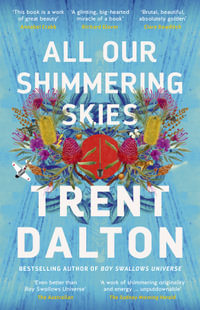Karl Marlantes's debut novel Matterhorn, a
New York Times Notable Book and winner of the Center for Fiction's Flaherty-Dunnan First Novel Prize, has been hailed as a modern classic of war literature. In his new novel,
Deep River, Marlantes turns to another mode of storytelling-the family epic-to craft a stunningly expansive narrative that is no less rich and honest in its depiction of human suffering, courage, and reinvention.
Born into a farm family in late nineteenth-century Finland, the three Koski siblings-Ilmari, Matti, and Aino-are brought up on the virtue of maintaining their sisu in the face of increasing hardship, especially after their nationalist father is arrested by imperial Russian authorities, never to be seen again. Lured by the prospects of the Homestead Act, Ilmari and Matti set sail for America, and the politicized young Aino, haunted by the specter of betrayal after her Marxist cell is disastrously exposed, follows soon after. Not far from the majestic Columbia River and in the shadow of Douglas firs a hundred meters high, the brothers have established themselves among a logging community in southern Washington, and it is here, in the New World, that each sibling comes into their own-Ilmari as the family's spiritual rock; Matti as a fearless logger and the embodiment of the entrepreneurial spirit; and Aino as a fiercely independent woman and union activist who, time and again, sacrifices for the political beliefs that have sustained her through it all.
Layered with fascinating historical detail, this is a novel that breathes deeply of the sun-dappled forest and bears witness to the stump-ridden fields the loggers, and the first waves of modernity, leave behind. At its heart, Deep River is an extraordinarily ambitious exploration of the place of the individual, and of the immigrant, in an America still in the process of defining its own identity.
























